
Since 2010, the Tsukuba-Plant Innovation Research Center has initiated activities in a Joint Usage/Research Center targeted for Japan as a “Plant Transgenic
Design Initiative (PTraD)” in order to advance existing knowledge by promoting collaborative research and education. The center authorized by the Ministry
of Education, Culture, Sports, Science and Technology(MEXT) has been established to promote academic research on plant genes and to facilitate collaborative research among researchers in the related field in Japan. This center will become one of the global core institute for research on plant sciences and biotechnologies.
Research Objectives
- (1)Fundamental Technology Researches Group
- Collaborative researches concerning the search for practical genes related to morphology, environmental response, and – interactions, useful genes related to the production of functional substances, and the functional analysis by mass expression of proteins in plants and their purification.
- (2) Experimetal Plant Bioresource Group
- Collaborative researches concerning infrastructure for model crops such as tomatoes as development, maintenance, and conservation, and research and development (TILLING, BAC library, etc.) to utilize them through domestic and international collaboration.
- (3)Genome Editing /Transformation Technology Utilization Research Group
- Collaborative researches concerning the development of new plant breeding technologies, including novel plant transformation technologies and genome editing technologies, and the development of transformed plants with new functions and high added value.
- (4) Biodiversity Impact Assessment/Environmental Risk Assessment, Management Research Group
- Collaborative researches concerning the development of cultivation and management technologies for biotechnology-derived plants, using specific net rooms and isolated fields, and the development of technologies for evaluating biodiversity impact assessment according to the characteristics of biotechnology-derived plants.
- (5) Industry-Academia-Government Collaboration Practical Assessment Group
- Collaborative researches concerning cultivar development using new plant breeding technologies including genome editing technology formodel crops, and social implementation research-type joint research using isolated fields, specific net rooms, and elds.
- (6) Ethical, Legal and Social Issues (ELSI)/Enhance Understanding Group
- Collaborative researches concerning the development of new evaluation, detection, and analysis methods, and the planning of development strategies for biotechnology-derived plants according to the purposes, the promotion of the social acceptance of biotechnology-derived plants, and support a wide range of research and research such as the acquisition of genetic resources and bioresources and rights management as biotechnology research resources, to promote social acceptance.
Research Objectives

- (1) Basic Technology Researches Group
- Identify useful genes related to morphologic control, environmental responses and metabolism in plants
- (2) Experimetal Plant Bioresource Group
- Preservation of experimental strains of Solanaceous species (tomato, potato and tobacco), and international collaboration for establishing the preservation system and researches activities on classification and utilization of the plant bioresources
- (3) Transformation Technology Researches Group
- Collaborative researches concerning the development of transformation procedure and development of selection technology of transfectants
- (4) Transgenic Plant Cultivation Technology Researches Group
- Collaborative researches concerning the development of cultivation technology for transgenic and nontrans genic plants using the special netted-houses and the isolated fields under simulated environmental conditions
- (5) Industry-Academia-Government Collaboration Practical Assessment Group
- Collaborative researches concerning cultivar development using new plant breeding technologies including genome editing technology for model crops, and social implementation research-type joint research using isolated elds, speci c net rooms, and fields.
- (6) Ethical, Legal and Social Issues (ELSI)/Enhance Understanding Group
- Collaborative researches concerning the development of new evaluation, detection, and analysis methods, and the planning of developmentstrategies for biotechnology-derived plants according to the purposes, the promotion of the social acceptance of biotechnology-derived plants, and support a wide range of research and research such as the acquisition of genetic resources and bioresources and rights management as biotechnology research resources, to promote social acceptance.
Collaborative researches and its outcomes
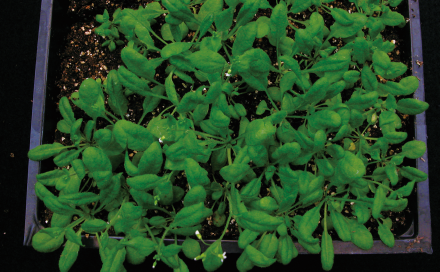
- Research regarding environmental
stress response

- Interaction of legume root and
nodule bacteria
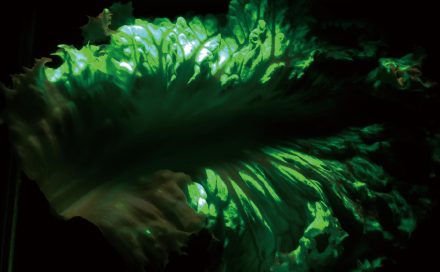
- Protein expression system in plants

- Tomato resource

- Analysis of important traits
in crop plants
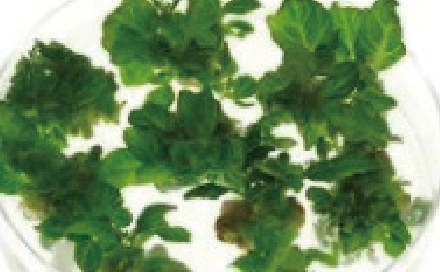
- Transformation method
development
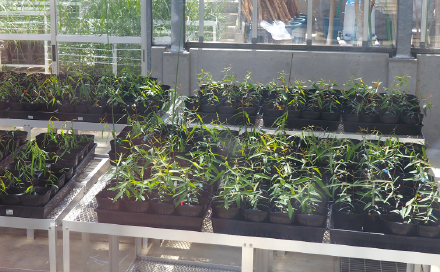
- Cultivation trial in the specific
netted-house
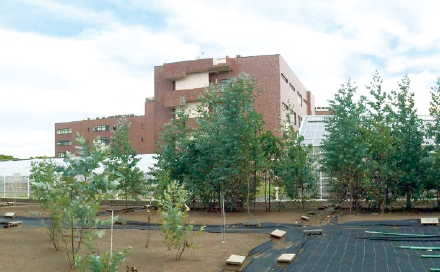
- Cultivation trial in the
isolated field

- Field research for biodiversity impact
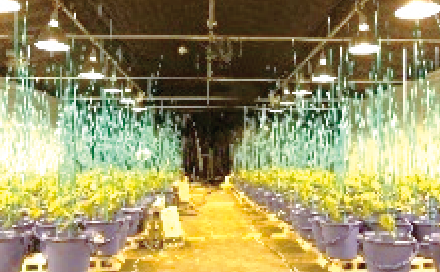
- Development of
stress tolerance assessment method
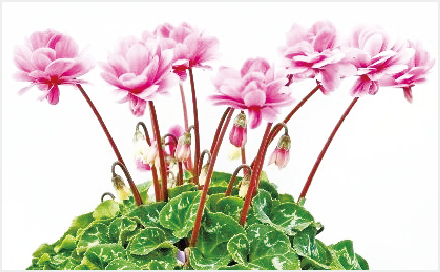
- Genetically modified cyclamen
(Multi-pedal cyclamen)

- Development of scientific
literacy educational materials
We have been holding lively discussions providing opinions and requests regarding directionality of shared use and cooperative hub activities while promoting interactive exchange within the researchers’ communities.


